Superfund Research Program
Congratulations to the 2020 winners of the K.C. Donnelly Externship Award!
Ahlam Abuawad
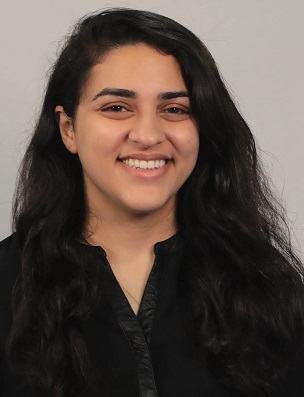
Ahlam Abuawad is a doctoral student with the Columbia University Superfund Research Program (SRP) Center working under the mentorship of Center Director Ana Navas-Acien, M.D., and Mary Gamble, Ph.D. For her externship, Abuawad will travel to Hanover, New Hampshire, to work with Margaret Karagas, Ph.D., at the Dartmouth College SRP Center.
Abuawad's research focuses on how nutrition and arsenic exposure interact to affect diabetes and other metabolic outcomes in American Indian and Bangladeshi populations. She uses untargeted metabolomics to identify new metabolites involved in arsenic-related diabetes. Untargeted metabolomics is an approach that attempts to detect all metabolites, known and unknown, in a biological sample. Through this externship, she will expand her research to encompass early life exposures by using cord blood metabolomics, gestational diabetes, and arsenic exposure data from the New Hampshire Birth Cohort.
"The K.C. Donnelly Externship will enable me to develop my skills and knowledge of metabolomics, prenatal environmental exposures, and disease" Abuawad said. "I will also have the opportunity to collaborate with an interdisciplinary team of researchers that are experts in early-life toxic metal exposures."
Juliana Agudelo
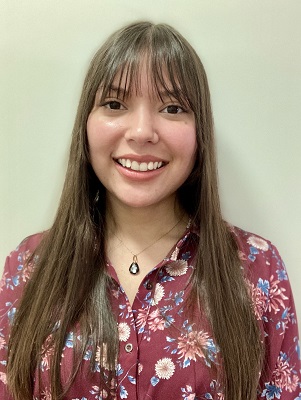
Juliana Agudelo is a doctoral student with the University of Rhode Island SRP Center under the guidance of Angela Slitt, Ph.D. For her externship, Agudelo will spend two months at the U.S. Environmental Protection Agency (EPA) Office of Research and Development in Research Triangle Park, North Carolina under the mentorship of Mark Strynar, Ph.D.
Agudelo studies mice and human liver samples to investigate the link between per- and polyfluoroalkyl substances (PFAS) and liver disease. Through the externship, Agudelo will learn to use targeted and untargeted methods, which detect both known and unknown compounds, to measure PFAS and proteins in human liver samples. This research will provide critical information on the types and levels of PFAS chemicals found in the human liver and the potential links between liver protein expression and disease.
"The externship will enhance my knowledge of state-of-the-art analytical methods for detecting a wide range of PFAS," Agudelo noted. "This work will allow me to link our rodent and liver cell findings with more human-relevant data to make my PFAS work more useful in human risk assessment."
Jogen Atone
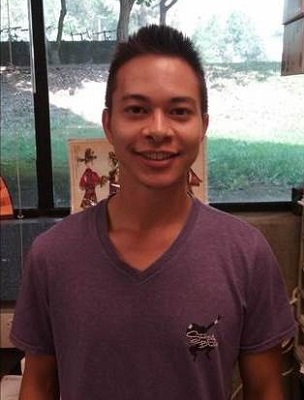
Jogen Atone is a doctoral candidate with Bruce Hammock, Ph.D., center director at the University of California, Davis SRP Center. Atone will travel to Seattle, Washington to work with Zhengui Xia, Ph.D., at the University of Washington SRP Center.
Atone uses studies in mice to determine how exposure to the pesticides paraquat and rotenone affect the brain, and how certain lipids produced in the body may protect against these chemicals. Through the externship, Atone will learn new methods for isolating neural stem cells and assessing how environmental chemicals affect cell survival and development. He will also learn to conduct behavioral tests to examine the impact of neurotoxicants on cognitive abilities in mice.
"The K.C. Donnelly externship will allow me to work in one of very few academic laboratories that knows how to assess the effects of environmental toxicants on neural stem cells from mice," said Atone. "These techniques will help me determine whether a certain pesticide or pollutant may cause dementia, and to validate the results using behavioral tests."
Jessica Ewald
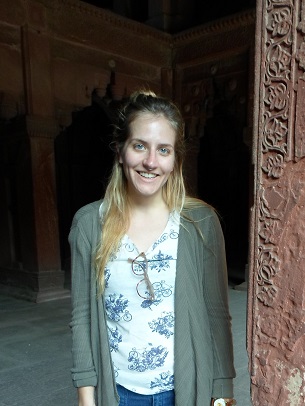
Jessica Ewald is a doctoral student at the University of Iowa SRP Center working under the co-mentorship of Timothy Mattes, Ph.D., and Jerald Schnoor, Ph.D. For her externship, Ewald will spend three months at the Duke University SRP Center working with Claudia Gunsch, Ph.D.
Ewald's research aims to improve the ability of microbes to break down polychlorinated biphenyls (PCBs) in the environment, a process called bioremediation, by identifying the genes and microbes present during this process. Through the externship, Ewald will process and analyze millions of gene datasets to identify relationships, networks, and differences between the genes expressed in microbial communities that actively degrade PCBs. She will use advanced statistical methods to determine the biological, chemical, and physical features of the microbial community and environment that drive or limit PCB degradation.
"The K.C. Donnelly externship will teach me new skills and techniques that will directly benefit my postgraduate professional goal to work at a national laboratory using large genomic datasets to understand and engineer environmental systems," said Ewald.
Jamie Kelly

Jamie Kelly, Ph.D., is a postdoctoral researcher working with Noelle Selin, Ph.D., at the Massachusetts Institute of Technology SRP Center. For his externship, Kelly will spend three months in Washington D.C. working with Benjamin DeAngelo, Ph.D., of the National Oceanographic and Atmospheric Administration, and Terry Keating, Ph.D., and Kathleen Raffaele, Ph.D., of the U.S. EPA.
During Kelly's postdoctoral research, he developed a mathematical model to predict how the chemical composition of the atmosphere affects the transport of polycyclic aromatic hydrocarbons (PAHs). For his externship, Kelly will use his model to conduct a human and ecological risk assessment and identify the source of PAH emissions, called source-apportionment. He will also investigate how meteorological changes, such as increased temperature and rainfall, affect PAH concentrations. Throughout his externship, Kelly will work with members of governmental and environmental organizations to share how his model can inform health protective policies.
"The K.C. Donnelly externship will allow me to incorporate risk assessment, source-apportionment, and resiliency methods into my research," said Kelly. "Expanding my model using these methods is critical to generate the information necessary to develop PAH emission reduction strategies."
Katlyn McGraw
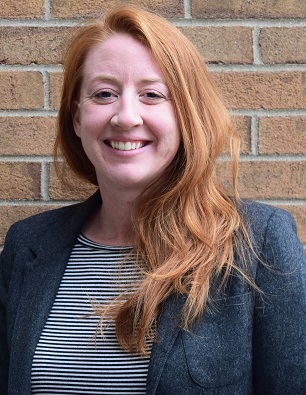
Katlyn McGraw is a doctoral candidate with the University of Louisville SRP Center under the mentorship of Aruni Bhatnagar, Ph.D. For her externship, she will travel to New York City to work with Ana Navas-Acien, M.D., director of the Columbia University SRP Center.
McGraw uses metabolomics, an approach that identifies and measures the chemical metabolites that cellular processes leave behind, to explore the associations between exposure to volatile organic compounds (VOCs) and cardiovascular health. Through this externship, she will expand her work by using novel statistical methods to assess how chemical mixtures affect health. She will use data from two cohorts to determine common mixtures of VOC exposure and to evaluate the interaction between metal mixtures and air pollution on cardiovascular disease.
"This externship will provide me the opportunity to learn and apply advanced statistical methods to evaluate the health effects of co-exposures," said McGraw. "It will also increase the impact of my study results by filling gaps in the literature with respect to multiple VOC exposures."
Yvonne Rericha
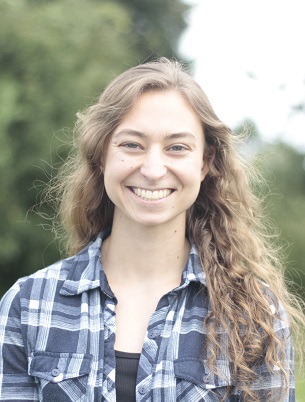
Yvonne Rericha is a doctoral student under the mentorship of Center Director Robyn Tanguay, Ph.D., at the Oregon State University SRP Center. For her externship, Rericha will travel to Rhode Island to work with Robbert Creton, Ph.D., and Jessica Plavicki, Ph.D., at the Brown University SRP Center.
Rericha studies zebrafish to investigate the mechanisms by which PFAS and PAHs harm development. Through her externship, she will apply advanced imaging techniques to examine how these exposures affect the development and integrity of blood vessels in the zebrafish brain. Specifically, she will compare the effects of a PFAS compound called perfluorononanoic acid and a PAH compound called chrysene, which are commonly found at Superfund sites.
"This externship is an opportunity to learn advanced imaging techniques and acquire collaboration skills that are directly applicable to my Ph.D. project," said Rericha. "It will also strengthen my ability to investigate toxicological research questions, expand my professional network, and help me grow as an independent researcher."
Anna Robuck
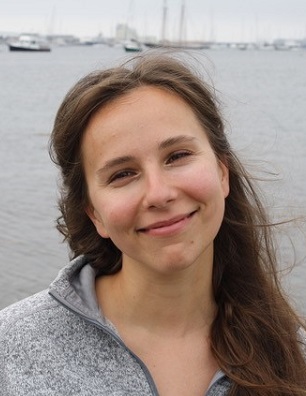
Anna Robuck is doctoral student working with Rainer Lohmann, Ph.D., at the University of Rhode Island SRP Center. For her externship, Robuck will travel to Research Triangle Park, North Carolina to work with Mark Strynar, Ph.D., and James McCord, Ph.D., at the U.S. EPA's Office of Research and Development.
Robuck focuses on the distribution of PFAS in marine food webs and water. The externship will expand Robuck's research by allowing her to use non-targeted and total fluorine methods to measure new and poorly characterized PFAS chemicals in the Delaware River Estuary. These methods provide a more complete characterization of PFAS compared to targeted methods, which only measure a small subset of the thousands of known PFAS chemicals. Robuck will assess the presence of PFAS chemicals in passive samplers, water samples, and fish samples collected from the estuary. She will use these data to estimate the total PFAS in the system.
"The externship will provide me valuable training and mentorship in non-targeted analysis of environmental samples," said Robuck. "It will also allow me to collaborate with groups outside of my immediate academic institution and in a federal agency setting."
Maya Spaur
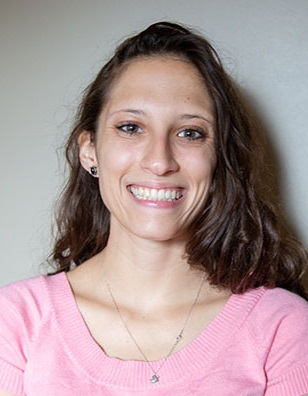
Maya Spaur is a first year Ph.D. candidate at the Columbia University SRP Center working under the guidance of Ana Navas-Acien, M.D. For her externship, Spaur will travel to Pembroke, New Hampshire to work with Melissa Lombard, Ph.D., and Joseph Ayotte at the United States Geological Survey New England Water Science Center.
Spaur is interested in characterizing arsenic exposure through public water supplies and private wells and evaluating the effectiveness of federal regulations to reduce public water arsenic exposures, with a focus on at-risk populations. During the externship, she will develop models to estimate the relationship between arsenic in groundwater and public water supplies in the U.S. She will also examine how arsenic in drinking water relates to urinary arsenic concentrations using data from the National Health and Nutrition Examination Survey.
"The K.C. Donnelly Externship represents an incredible opportunity for me to gain experience in environmental epidemiology and exposure assessment," Spaur said. "It will help me to better understand how groundwater affects drinking water exposures to promote healthier lives."
Paige Varner
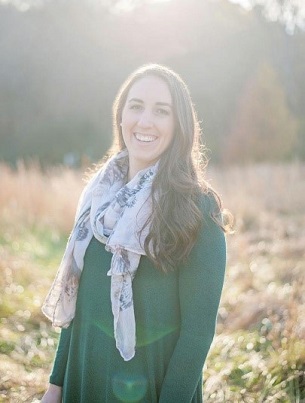
Paige Varner is a doctoral student working under the guidance of Claudia Gunsch, Ph.D., at the Duke University SRP Center. For her externship, she will work with Joshua Michener, Ph.D., at the Oak Ridge National Laboratory in Tennessee.
Varner studies the conditions that promote the ability of bacteria to break down PAHs in sediment. To do this, she uses an approach called genetic bioaugmentation, which increases the abundance and expression of genes important in chemical degradation. These genes can be transferred between different strains of bacteria on structures called plasmids in a process called horizontal gene transfer. Through the K.C. Donnelly externship, Varner will use high-throughput methods to determine the bacterial strains and environmental conditions that promote plasmid transfer and expression of PAH-degrading genes. She will also develop methods to assess horizontal gene transfer in the field using sediment samples collected from PAH-contaminated sites along the Elizabeth River in Virginia.
"This externship will allow me to better understand how various bacteria interact and which strains can successfully transfer plasmids to promote PAH degradation," Varner said. "I will also learn methods to measure horizontal gene transfer in the field to include in my dissertation work."
Hao Wang
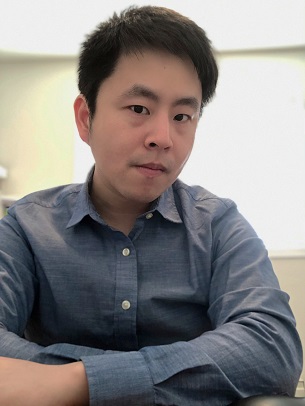
Hao Wang, Ph.D., is a postdoctoral trainee with Zhengui Xia, Ph.D., at the University of Washington SRP Center. For his externship, Wang will spend two months working with Bruce Hammock, Ph.D., at the University of California, Davis SRP Center.
Wang is interested in the mechanisms by which cadmium impairs adult neurogenesis, a process that generates new functional neurons in the adult brain. Through the externship, he will learn analytical chemistry methods to examine the role of lipid metabolism, a regulator of adult neurogenesis, as a potential mechanism of cadmium neurotoxicity.
"The K.C. Donnelly externship will equip me with a new set of analytical chemistry skills for analyzing metabolites," said Wang. "Conducting my lipid analysis study in cadmium-treated adult neural stem cells will provide new insight into the mechanism of cadmium toxicity on adult neurogenesis."


